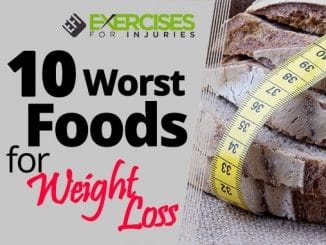In May 2017, the Centers for Disease Control and Prevention (CDC) reported that death rates from Alzheimer’s disease increased by an astonishing 55 percent between 1999 and 2014.
Currently, Alzheimer’s is the sixth-leading cause of death in the United States and the fifth-leading cause of death among people 65 years and older. Researchers attribute the increases in death rates mostly to the rising number of aging adults in America. Age is the greatest risk factor for the disease, but there are others that can be just as influential.

The Alzheimer’s Society of Canada states that smoking, obesity, high blood pressure, diabetes, and high cholesterol levels are all risk factors for cardiovascular disease — and simultaneously, risk factors for Alzheimer’s disease and other forms of dementia.
More specifically:
- Smokers are at a 45 percent higher risk of developing Alzheimer’s than nonsmokers
- People with type 2 diabetes are, on average, twice as likely to develop dementia as those who don’t have diabetes
- People with high cholesterol levels in midlife are more likely to develop dementia compared with those with more normal cholesterol
- Obesity and lack of activity both increase the risk of dementia and Alzheimer’s
Other risk factors that are out of our control include age, genetics, and medical conditions like Parkinson’s disease and multiple sclerosis.
The good news is that we can take action to reduce our risk. When we adopt healthy lifestyle habits like exercising regularly; avoiding excessive alcohol consumption; reducing stress; and controlling blood pressure, weight, and cholesterol; we support brain health and increase our odds of enjoying full mental capacity as we age.
One of the most important things we can do is to eat right. Scientists have discovered that what is good for the heart is good for the brain and that includes eating a healthy diet. Adding more high-fiber items, nutritious fruits and vegetables, and healthy fats — rich in omega-3 fatty acids — to your daily meals goes a long way toward safeguarding the brain.
Diet is so critical to brain health, in fact, that scientists have found certain foods that help preserve memory and certain foods that do just the opposite. Are you choosing the right ones to stay mentally sharp?
Foods that Preserve Memory and Brain Function
What is the best combination of nutrients to help preserve brain function as we age? Scientists know that a healthy diet helps. But they’re digging further to find out just what nutrients are most important.
In a recent 2017 study, for example, they compared eight different diets to determine how they affected learning and memory. They fed the diets to animal subjects for 16 weeks, and then put the subjects through a series of learning and memory tests.
Results showed that the diet that included a combination of the following five nutrients had the largest effect on learning and memory recall:
-
Quercetin:
This is a common nutrient called a “flavonoid” that gives fruits and vegetables their colors; it has been linked with reducing inflammation and is found in apple skin peels, peppers, grapes, cherries and berries.
-
Natural vitamin E:
This nutrient is a natural inflammation-fighting antioxidant found in nuts, seeds, vegetables and seafood
-
Choline:
This micronutrient is found in eggs, beef, and Brussels sprouts and has been connected with supporting optimal brain function
-
DHA (docosahexaenoic acid):
This is the most abundant omega-3 fatty acid in the brain and is critical for brain health; you’ll find it in fatty fish, egg yolks, walnuts and chia seeds.
-
Folate:
This is the natural form of folic acid or vitamin B9; it supports cell repair and brain function and is found in brightly colored foods like beets, papayas, avocados and spinach; a deficiency in folate is linked with depression and decline in cognitive function
Other studies have found similar results — that what we eat affects the brain, and that the more “brain foods” we consume, the healthier the brain is. After analyzing 160 studies about food’s effect on the brain, researchers reported in a 2008 study that a balanced diet could protect the brain and ward off memory loss.
“Food is like a pharmaceutical compound that affects the brain,” said lead researcher Fernando Gómez-Pinilla. “This raises the exciting possibility that changes in diet are a viable strategy for enhancing cognitive abilities, protecting the brain from damage and counteracting the effects of aging.”
We need a lot more studies before we can say for sure which nutrients best protect the brain. But what we can take away from current research is that it’s important to eat a varied diet full of fruits, vegetables, fish and nuts. The more of these items we can get into our meals, the better our odds of avoiding Alzheimer’s and other forms of dementia that affect memory.
7 Foods That Can Damage Your Brain and Steal Your Memories
Just like some foods can help protect the brain, others can cause damage, particularly if we eat a lot of them over time.
In the study review above, for example, researchers found that diets high in trans fats and saturated fats had a negative effect on cognitive function. You may have experienced the temporary effects after eating a junk-food lunch: your thinking slows. Your decision-making power suffers, and you may long for a nap.
If you’d like to enjoy a good memory and sharp brain function into your senior years. Eat more healthy foods and avoid the following seven memory-robbers as often as you can.
1. Buttery Microwave Popcorn
This can be a tricky one because air-popped popcorn is a high-fiber food that’s good for you. Butter-flavored microwave popcorn, however, often contains a chemical called diacetyl that has been linked with Alzheimer’s disease.
In 2012, researchers from the University of Minnesota reported that diacetyl causes brain proteins to turn into dangerous beta-amyloid proteins that are the hallmark markers of Alzheimer’s. They also found that the chemical was similar to a substance that causes amyloid proteins to clump together. Which is what they do to cause brain damage in Alzheimer’s patients.
Further, diacetyl can affect the brain’s protective blood-brain barrier and interfere with the brain’s natural ability to clear out destructive proteins. Diacetyl has also been linked with serious lung damage and disease in people who work in microwave popcorn factories.
Many companies have vowed to remove diacetyl from their popcorn, but some remain on the market. Check the box for wording similar to “no added diacetyl butter flavorings” or make your own popcorn.
2. Diet Soda
Artificial sweeteners were all the rage when they first came onto the market. But, recent studies have connected them to potential weight gain and sugar addiction. Some studies have also suggested that they may raise the risk of Alzheimer’s and stroke.
Researchers compared medical records from those who had suffered a stroke or dementia with the participants’ self-reported beverage intake. They found that a higher recent and higher cumulative intake of artificially sweetened sodas was associated with an increased risk of stroke. Also in all-cause dementia and Alzheimer’s disease.
Compared to those who never drank diet sodas, those who drank one a day were almost three times as likely to be diagnosed with dementia. Beverages sweetened with real sugar were not associated with either stroke or dementia in this study.
Researchers noted that the study showed a relationship between diet sodas and dementia. It didn’t show that one caused the other. However, diet sodas have also been linked with other health problems too. So, to reduce your risk, choose water or tea instead.
3. Regular Soda & Sugar-sweetened Cereals
Just in case you think that you have carte blanche to enjoy a regular soda each day, think again. Scientists have linked foods high in sugar to memory problems, and that a can of soda is one of the worst foods for memory you can consume.
One recent study, for example, linked sugary drinks to preclinical Alzheimer’s disease. Researchers looked at images of the brain that showed the beginnings of Alzheimer’s. Then compare those with each participant’s consumption of sugary beverages. They found that a higher intake of these drinks was associated with a lower total brain volume and poorer performance on memory tests.
The researchers concluded that one to two sugary drinks a day was associated with 1.6 years of brain aging. And, greater than two sugary drinks per day corresponded to 11 years of brain aging.
An earlier study also found that a diet rich in high-fructose corn syrup sabotaged learning and memory. Subjects fed such a diet suffered from slowed brain function and poor memory recall.
Make sure to read labels. Most sugary drinks contain high fructose corn syrup or at least high amounts of plain sugar. Many breakfast cereals also contain high levels of one or the other. Choose whole-grain options with less sweetener instead and watch out for foods that seem healthy but are high in sugar. Such as flavored yogurts, condiments, sauces, snack bars, fruit juice, smoothies, and baked goods.
4. Pizza
Add to this any food that’s especially high in saturated fats, and those high in cheese content usually qualify.
Recent research has questioned the advice to avoid most high-fat foods. We now know that some fats are good for us and important for brain and heart health. In fact, the brain can suffer if we don’t get enough healthy fat on a daily basis.
We have to be careful not to go overboard, however, and food items like pizza and pasta dishes can give us too much-saturated fat at once. Research has found a connection between diets with a high level of saturated fat. And, relatively lower levels of healthy monounsaturated fats and high cholesterol. Which can increase the risk of Alzheimer’s. Cholesterol is involved in both the generation and deposition of those dangerous beta-amyloid proteins.
Other studies have linked a high intake of saturated fat with a doubling in the risk for Alzheimer’s, with dangerous trans-fats, such as those found in french fries and other fried foods, associated with two to three times the risk. These sorts of fats cause inflammation, which is believed to be a major factor in the disease.
We need more studies to be sure of the effects of different types of fat, but with what we know so far. It’s best to control your intake of foods high in unhealthy saturated fats.
5. Fast Food
A bit of McDonald’s a couple of times per year is not likely to affect your memory, but if you regularly visit fast-food chains, such as once a week or more. Then, you could be putting your brain at risk.
Not only are most fast foods fried, but many also contain dangerous trans fats, along with other unknown chemicals and fillers. According to a 2008 study, subjects who were fed a typical fast-food diet for nine months developed changes in the brain. Similar to those that occur in Alzheimer’s patients.
We know these foods aren’t good and worst foods for our memory. Just keep in mind that not only may they affect your weight and your heart. But they also can affect your brain and memory, too. If you must stop by that fast-food joint, choose grilled meat instead of fried, water or iced tea instead of soda, and a salad instead of fries.
6. Bacon & Beer
Both of these foods are the worst foods for our memory, as well as other processed meats, containing nitrites and nitrates, chemical compounds that are harmful to human health and have links to cancer, dementia, and the worst foods for memory.
A study by researchers from Rhode Island Hospital reported a substantial link between increased levels of nitrites and increased deaths from Alzheimer’s. When scientists examined mortality rates from Alzheimer’s disease between 1968 and 2005, they found that death rates increased dramatically. However, death rates from other brain diseases declined.
Then, they compared these rates with the annual use and consumption of nitrite-containing fertilizers, annual sales of nitrite-containing foods at fast-food stores, and sales of processed meats. They found that nitrogen-containing fertilizer consumption increased by 230 percent during that time period. And sales of fast-food and processed meats increased more than 8-fold from 1970 to 2005.
The figures lined up, prompting scientists to theorize that the increasing presence of nitrates and nitrates in our environment and food corresponded to the increasing rates of Alzheimer’s. They suggested eliminating these dangerous chemicals from foods and fertilizers.
7. White Rice & White Bread
These foods are also the worst foods for our memory and others like them (pasta) are high on the glycemic index, which means that they break down quickly into glucose (sugar) in the body. This can tax your body’s ability to process them, which may result in a high blood sugar level. High blood sugar has been connected with Alzheimer’s.
We already know that diabetes patients have an increased risk of Alzheimer’s because of high blood sugar levels. In a recent study, researchers determined that abnormally high blood sugar levels even in patients without diabetes could increase the risk of Alzheimer’s.
It turns out that all that glucose in the blood can damage a protein called MIF. Which is important in fighting the early stages of the disease. Scientists now think that MIF is the link between high blood sugar levels, diabetes, and Alzheimer’s.
“Normally, MIF would be part of the immune response to the buildup of abnormal proteins in the brain,” said senior author Jean van den Elsen, “. We think that because sugar damage reduces some MIF functions. And, completely inhibits others this could be a tipping point that allows Alzheimer’s disease to develop.”
Eating a diet low on the glycemic index is a known way to keep your blood sugar levels under control. worst foods for memory include:
- White bagels
- White rice
- White bread
- White pasta
- White potatoes
- Sugary breakfast cereals
- Cakes and cookies
- Sugary sodas
- Fruit juices
- Candy
Foods that help keep blood sugar levels balanced include:
- Whole grains
- Sweet potatoes
- Most vegetables
- Lentils and beans
- Reduced fat, unsweetened yogurt
- Seeds and nuts
- Tomato juice
- Bran cereals
- Most fresh fruits, but not dried fruits
- Plain popcorn
- Hummus
If you want to know what foods will help you restore your natural vitality and get slim and stay slim, then check out the Best Foods That Rapidly Slim & Heal in 7 Days program, here!









